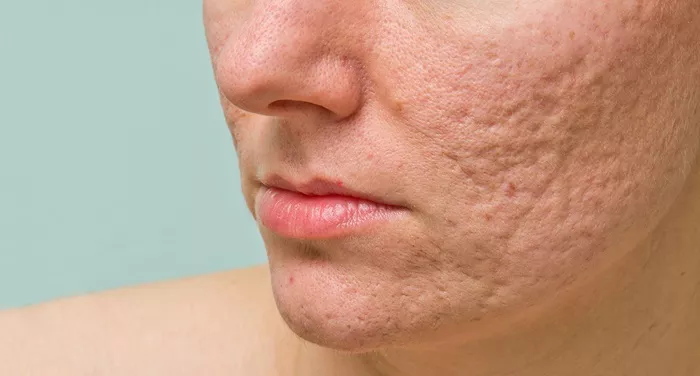Scarring is a natural part of the healing process following an injury or surgery. Scars can vary in appearance and texture, and their progression over time can often be a concern for many. A common question that arises is whether scars get worse with age. This article delves into the relationship between aging and scar formation, providing a comprehensive understanding of how and why scars may change over time.
Scarring
To comprehend how aging affects scars, it is essential first to understand what scars are and how they form. Scarring occurs when the skin’s dermal layer is damaged, triggering the body’s healing response. During this process, the skin produces collagen, a protein that helps repair the damaged area. However, the collagen produced during scarring is different from that of the surrounding skin, leading to a visible mark.
Various types of scars
Hypertrophic Scars: Raised and red scars that remain confined to the wound site.
Keloid Scars: Larger, raised scars that extend beyond the wound site.
Atrophic Scars: Depressed or sunken scars that can appear as a result of acne or other skin conditions.
Contracture Scars: Scars that tighten the skin, often occurring after burns.
Each type of scar can behave differently as one ages, which we will explore further in this article.
The Aging Process and Skin Changes
As we age, our skin undergoes several changes that can affect the appearance and texture of scars. Understanding these changes helps in assessing how scars might evolve with age.
1. Decrease in Collagen Production: Collagen is crucial for skin elasticity and repair. With age, collagen production decreases, leading to thinner skin and reduced ability to heal and regenerate effectively. This decline can affect how scars form and heal over time.
2. Reduction in Skin Elasticity: Aging skin loses its elasticity due to decreased collagen and elastin fibers. This reduction can make scars appear more prominent or cause them to become more noticeable as the surrounding skin becomes less firm.
3. Thinning of the Epidermis: The outer layer of the skin, the epidermis, thins with age. This thinning can make scars more visible, as there is less skin to cover and conceal them.
4. Changes in Blood Circulation: Aging can also impact blood circulation, affecting how nutrients and oxygen are delivered to the skin. Poor circulation can impair the skin’s ability to heal and may lead to changes in scar appearance.
See Also: How Can I Improve the Color of My Scars?
Do Scars Get Worse with Age?
The question of whether scars get worse with age is complex, as it depends on various factors including the type of scar, the location, and individual skin characteristics. Here’s an overview of how scars can change as we age:
1. Hypertrophic Scars: These scars may become less prominent with age as the skin loses elasticity and the scar tissue becomes more aligned with the surrounding skin. However, in some cases, they may still remain raised but could appear less red or inflamed over time.
2. Keloid Scars: Keloids may continue to grow over time if not treated. Aging skin’s decreased elasticity can also contribute to keloids becoming more noticeable as they stretch and distort.
3. Atrophic Scars: Atrophic scars may become more visible as the skin thins with age. The contrast between the scarred area and the surrounding skin can become more pronounced.
4. Contracture Scars: These scars, which often occur from burns, can become more restrictive as the skin loses elasticity. Aging can exacerbate the tightness and functional impairment caused by contracture scars.
Factors Influencing Scar Progression with Age
Several factors can influence how scars evolve with age, including:
1. Genetics: Genetic predisposition plays a significant role in how scars develop and change over time. Some individuals may have a genetic tendency for more pronounced scars or slower healing processes.
2. Sun Exposure: Prolonged sun exposure can cause further damage to aging skin and exacerbate scar visibility. UV rays can lead to pigmentation changes and increase the prominence of scars.
3. Overall Skin Health: Maintaining good skin health through proper hydration, nutrition, and skincare can impact how scars age. Healthy skin is better equipped to manage and reduce the appearance of scars.
4. Scar Treatment: Treatments such as silicone gel sheets, laser therapy, or topical treatments can influence how scars develop over time. Regular treatment may help improve the appearance of scars and mitigate changes associated with aging.
Managing Scars as You Age
There are several strategies to manage and improve the appearance of scars as you age:
1. Sun Protection: Use sunscreen to protect scars from UV damage, which can worsen their appearance. This is particularly important as aging skin is more susceptible to sun damage.
2. Moisturization: Keeping the skin hydrated can improve its elasticity and overall appearance. Moisturizers and hydrating creams can help prevent further skin damage and support scar healing.
3. Scar Treatments: Consider professional treatments like laser therapy, microdermabrasion, or chemical peels. These treatments can help reduce scar visibility and improve skin texture.
4. Healthy Lifestyle: A balanced diet rich in vitamins and antioxidants can support skin health and healing. Regular exercise and hydration also contribute to overall skin condition.
5. Consult a Dermatologist: For persistent or concerning scars, consulting a dermatologist can provide personalized treatment options and recommendations based on individual skin needs.
Conclusion
Scars do not necessarily get worse with age, but the aging process can impact their appearance and how they change over time. Factors such as reduced collagen production, decreased skin elasticity, and thinning of the epidermis can influence the visibility and texture of scars. Understanding these changes and employing effective scar management strategies can help mitigate their impact and maintain healthy, resilient skin. By taking proactive steps to care for your skin and seeking appropriate treatments, you can manage the appearance of scars and ensure that they do not become a significant concern as you age.
[inline_related_posts title=”You Might Be Interested In” title_align=”left” style=”list” number=”6″ align=”none” ids=”10399,9120,10601″ by=”categories” orderby=”rand” order=”DESC” hide_thumb=”no” thumb_right=”no” views=”no” date=”yes” grid_columns=”2″ post_type=”” tax=””]

































